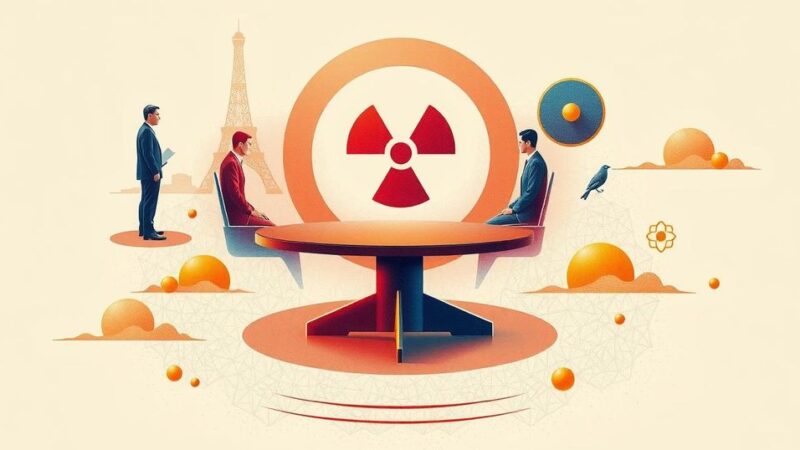Recent statements by Pakistan’s Prime Minister at the UN have drawn parallels between Palestine and Kashmir, yet the similarities are largely superficial, rooted in differing historical contexts and geopolitical dynamics. Whilst Kashmir has seen military stalemates since the 1972 agreement, Palestine’s struggles show no signs of resolution amid ongoing Western interventions. Each region’s conflict narrative also reflects varied international support, complicating prospects for peace in light of enduring colonial legacies.
The parallels drawn between Palestine and Kashmir persist within international discourse, notably illustrated by recent remarks made by Pakistan’s Prime Minister at the United Nations. While there are superficial similarities in their narratives, they primarily arise from theoretical constructs rather than substantive equality. The establishment of Israel in 1948 coincides with the onset of conflict in Kashmir following India’s partition. Such conflicts represent enduring consequences of colonial imperialism, whereby both nations have had their aspirations undermined by the unfulfilled promises of various United Nations resolutions. Historically, the confrontations surrounding Kashmir have led to prolonged stalemates, particularly after the 1972 Shimla Agreement; in contrast, the Palestinian plight continues without resolution. The 1989 resurgence in Kashmir came in the wake of the Cold War’s conclusion, contrasting sharply with Palestine’s geopolitical entanglements dominated by Western interventions in the Middle East. The Palestinian and Kashmiri struggles have seen their narratives overshadowed or manipulated within broader geopolitical agendas. Kashmiris initially received support from Western powers due to Pakistan’s alliances, whilst Palestine was backed by the USSR, illustrating divergent international influences. The context for conflict in Palestine notably deepened with the military expansiveness of US-led campaigns against former Soviet allies, which has had catastrophic repercussions across the region, including in Libya, Syria, and Iraq. The tension in Kashmir, especially during the 1990s, was often framed in apocalyptic terms concerning the risk of nuclear confrontation between India and Pakistan. Intellectuals within the Hurriyat Conference, like Professor Abdul Ghani Bhatt, invoked poetic rhetoric to express concerns over escalating conflicts. However, this narrative seems romanticized when analyzed against the real consequences of the geopolitical maneuvers at play. Furthermore, the ongoing conflict in Gaza highlights an age-old disparity in military scrutiny, with advanced Western satellites perpetually monitoring Israel, ultimately shaping regional dynamics. The engagement of Pakistani officials at the UN, asserting their readiness against perceived Indian aggression, stands in stark contrast to China’s muted response to its disputes with India, which suggests a pragmatic approach to bilateral relations. In highlighting India’s attempts at ‘internationalising’ the Kashmir issue — illustrated through guided tours of local elections to foreign diplomats — it appears Pakistan may inadvertently undermine its cause. The stark differences in Western and non-Western responses to regional disputes are evidenced by the ongoing violence in Gaza, which exemplifies the devastating consequences of military interventions where civilian lives hang in the balance. The implications of continued military engagement in Lebanon are poised for escalation, particularly after the targeted actions against key Hezbollah figures resulting from extensive intelligence operations. Amid such hostilities, Iranian support seems focused on logistical sustenance rather than aggressive armament, a contrast to the military posturing prevalent in the Kashmir conflict. The implications of these dynamics underscore the complex interplay of local and international politics, revealing the dire need for resolution that transcends mere surface-level comparisons between Kashmir and Palestine.
The ongoing international dialogues surrounding conflicts in Palestine and Kashmir frequently invoke comparisons that may not fully encapsulate the unique circumstances surrounding each situation. The historical contexts, geopolitical dynamics, and varying international supports for both regions illuminate that while there are thematic parallels, the essence of each issue diverges significantly. This article engages with the implications of these legacies of colonialism and the resulting military strategies, diplomatic engagements, and the role of external powers in exacerbating tensions.
In concluding, the juxtaposition of the historical and contemporary struggles in Kashmir and Palestine highlights differing trajectories borne from colonial legacies. These conflicts should be approached with distinct understandings and contextual awareness, allowing for a clearer path toward resolution rather than perpetuating superficial comparisons. The international community’s responses remain crucial in determining the potential for peace and stability in both regions.
Original Source: www.dawn.com






